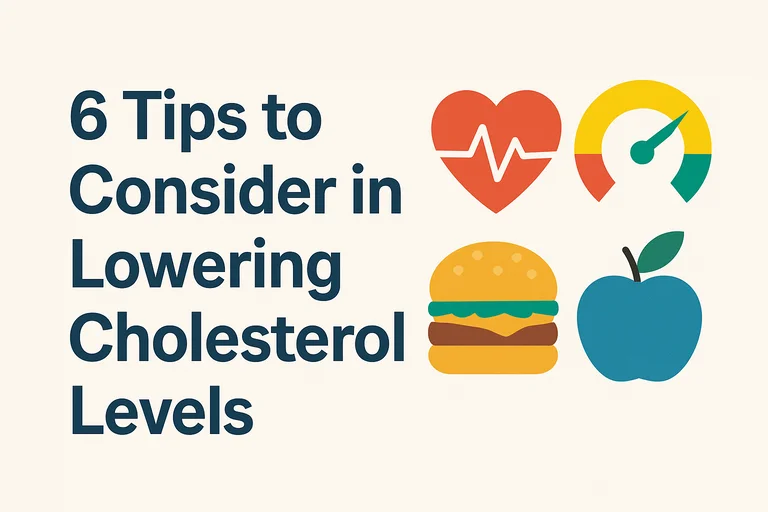6 Tips to Consider in Lowering Cholesterol Levels
Lowering Cholesterol Levels
It might be because of the fast-paced world that we are living in right now that led us to eat instant and processed foods that can be easily boiled, fried, or heated in the microwave.
However, this also carried health risks and one of the common effects is elevated cholesterol levels.
Without a doubt, ensuring that cholesterol levels are within the normal range can prevent various diseases such as heart disease and stroke.
Tips to Lower Your Cholesterol Level
First, eat a heart-healthy diet.
Eating plenty of fruits, vegetables, whole grains, and lean protein sources can help reduce cholesterol levels.
Avoid foods high in saturated and trans fats, such as red meat, fried and processed foods.
Avoid sugary foods and carbonated drinks especially those that contain high amounts of fructose.
Second, exercise regularly.
A 30-minute moderate-intensity daily exercise can help regulate blood flow, raise HDL (good) cholesterol, and lower LDL (bad) cholesterol levels.
Third, maintain a healthy weight.
Proper diet and regular exercise can help in losing and maintaining an appropriate body weight.
More importantly, this will help reduce cholesterol levels.
Then, quit smoking.
Unlike the effect of regular exercise to raise HDL and lower LDL, smoking can do the opposite.
Moreover, the long-term effect of smoking can inflame blood vessels which can cause plaque buildup which will eventually lead to stroke.
Next, learn to manage stress.
Yes, you read that right.
Stress can cause cholesterol levels to rise, which is why it is important to learn how to manage it.
You can manage stress by starting activities such as meditation, yoga, or deep breathing exercises to name a few.
Finally, take medications when necessary.
If the lifestyle changes above are not enough to lower your cholesterol, please consult your doctor for prescribed medicines such as statins to aid in reducing cholesterol levels.
Final Thoughts:
It is necessary to monitor our diet and maintain regular physical activity as part of living a healthy lifestyle.
This will ensure that we keep our cholesterol at normal levels.


